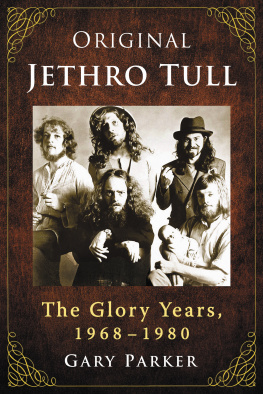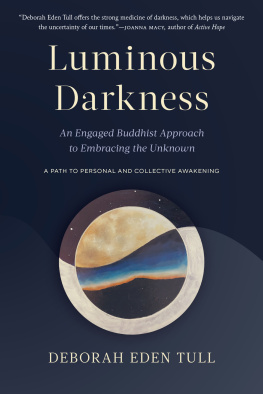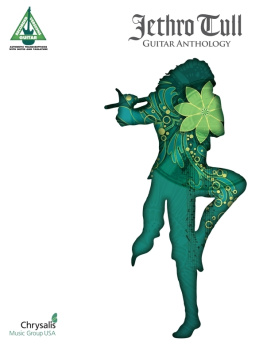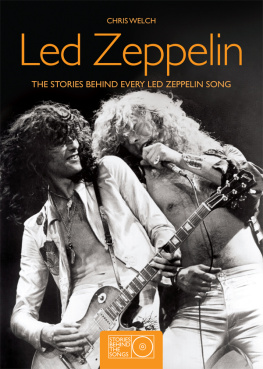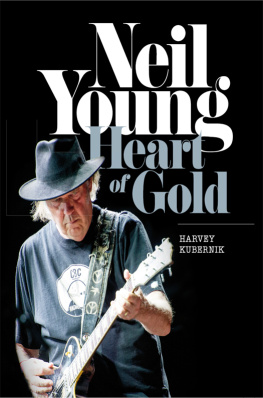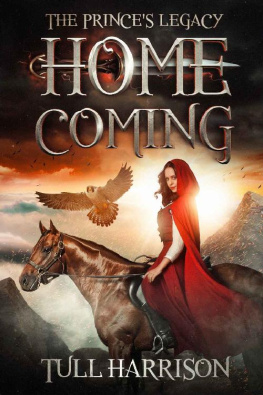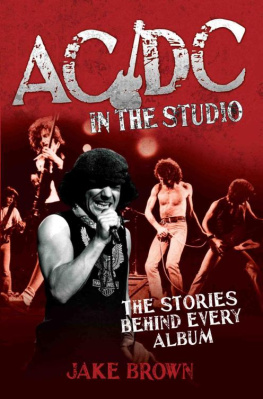
Original Jethro Tull
The Glory Years, 19681980
GARY PARKER

McFarland & Company, Inc., Publishers
Jefferson, North Carolina
LIBRARY OF CONGRESS CATALOGUING DATA ARE AVAILABLE
BRITISH LIBRARY CATALOGUING DATA ARE AVAILABLE
e-ISBN: 978-1-4766-3465-4
2018 Gary Parker. All rights reserved
No part of this book may be reproduced or transmitted in any form or by any means, electronic or mechanical, including photocopying or recording, or by any information storage and retrieval system, without permission in writing from the publisher.
Front cover: Jethro Tull (Chrysalis/Photofest)
McFarland & Company, Inc., Publishers
Box 611, Jefferson, North Carolina 28640
www.mcfarlandpub.com
For Kim
Acknowledgments
Sincere thanks rightfully extend to the following individuals whose valuable assistance have made the creation of this book possible: Anne Leighton, John Lappen, Julie Barre, Terry Ellis, Kim Parker, Gary St. Germain, Steven Finger (and the Los Angeles Free Press) and Dennis Hayes (wherever he is today).
Preface
Recently, for reasons Ive yet to discern, Ive found myself ruminating on the plight of the unappreciated artist. You know of whom I speak: those ambitious, talented individuals that toil in the artistic realm and, for one reason or another, never manage to attain the recognition they deserve.
After some consideration, its occurred to me that unheralded artists generally come in one of two stripes. The first are those true unfortunates who, despite genuinely measurable talent, find themselves condemned to commercial and critical obscurity throughout their lives. In that category, we have such now-celebrated individuals as Vincent Van Gogh (just two paintings sold during his lifetime), Henry David Thoreau (who toiled in virtual obscurity until the end of his days), Edgar Allan Poe (who shuffled off in a Baltimore gutter at age forty, with his work roundly ignored by critics and public alike) and Emily Dickinson (hailed today as probably the most important poet of the 19th century, yet who never lived to see her work in print).
Parenthetically, we have those individuals who have sampled deeply from the goblet of commercial acclaim, yet found themselves roundly dismissed by critics. (Artists of this variety, fat of wallet, yet bereft of talent, are not the subject of this book and it would be in extremely bad taste to name them. Oh, what the hell: Thomas Kinkade, Dan Brown and Jackie Collins.)
Then, of course, we have those rare artists that brought brilliance, creativity and excellence to their work and were fortunate enough to reap considerable financial rewards, but found themselves inexplicably slagged off by critics. For this category, I offer up the names of such august personalities as Shirley Jackson and Raymond Chandler.
Oh, and one more: the artists collectively known as Jethro Tull.
Fronted by flautist Ian Anderson and populated by an idiosyncratic collection of brilliant musicians who at their peak resembled nothing less than a slightly pixilated troupe of roving British minstrels, Tull was one of a handful of truly great rock bands to emerge from the late 1960s. Over the span of a decade, the group would release a string of sublime albums employing a whipsaw assortment of musical styles and in so doing would demonstrate that no band, with the possible exception of the Beatles, paid less heed to the old show biz maxim Once you find what the public wants, dont rock the boat. Before disbanding, Jethro Tull filled arenas worldwide and sold millions of albums.
Now Ill concede that selling albums by the lorry load and nestling butts in arena seats doesnt make for much of a sad tale. Certainly, no one will shed tears over the magnitude of the bands success, nor is it my intention to encourage anyone to do so. But in the years that have passed since Tulls demise in 1980, I find myself ruminating over the negative reviews directed at the band during its heyday by the chin-strokers who darkened the critical ranks. And by negative, Im not referring to the occasional less-than-stellar appraisal, but an inexplicableespecially in light of the bands impressive artistrybarrage of vitriol directed at few other groups. Jethro Tull is the sort of a group that invites criticism just by being what it is, Ian Anderson once remarked. For everyone who likes Jethro Tull, theres always somebody else who absolutely hates us.
If youre a fan of the band, you might be saying at this point, Hold on a second, I saw Jethro Tull in concert in [a year post1980]. How can you contend they split prior to that? to which I reply, Jethro Tull was musical aggregation consisting of Ian Anderson, Martin Barre, John Evans, Jeffrey Hammond, Barrie Barlow, David Palmer and John Glascock, that between 1971 and 1980 was responsible for such seminal works as Aqualung, Thick as a Brick, Minstrel in the Gallery and Songs from the Wood. In mid1980, Anderson, seeking freedom, but surrendering something vital in the process, disbanded the group. If you attended a Jethro Tull concert post1980, what you saw was Ian Anderson and an ever-morphing group of increasingly anonymous sidemen (Martin Barre and Dave Pegg notwithstanding). To wit: in the years following the 1980 split, the entity calling itself Jethro Tull saw no fewer than twenty-five musicians come and go from its ranks. Thats not a band, thats a meeting of the London Musicians Union. Did the group you saw post1980 perform well? No doubt. Was Ian Anderson magnetic? Likely. But was it Jethro Tull? Emphatically, no.
Which brings us to the point of this book. Less a critique of what Jethro Tull became and more of a celebration of what it once was, it chronicles how one of rocks singularly great groups swam against the musical currents for more than a decade and produced a series of note-perfect albums that some forty-plus years later retain their ability to astonish.
A word or two regarding a likely point of confusion youll encounter as you make your way through this book. In 1998, Jethro Tulls talented arranger and group member David Palmer underwent a gender transition and is now known as Dee Palmer. Accordingly, in sections of this book covering events that took place between the period of 1968 and 1980, Palmer is referred to as David. However, in quoting statements made to me during interviews, Palmer is referred to as Dee.
Lastly, in the course of writing this book, Ive attempted to pay heed to the words of a former member of the band, who urged me in an email to honor the enduring affection and love that the former members of Jethro Tull have all shared for more than fifty years. As a devoted fan of nearly half a century of the anomalous and idiosyncratic band known as Jethro Tull, Ive strived to honor those words. To Ian, Martin, John, Jeffrey, Dee and Barrie, who have given me so much pleasure over the years, I sincerely hope Ive succeeded.
Up the Pool
In the winter of 1956, a Scottish lad was skipping idly through the wavebands of his small radio when he first laid ears on the possibility: an echo-drenched rumble, tinged with a hint of menace, a mix, to the young man, as potent as nitro. It was a transcendent moment, one that would representat least sonicallynothing less than the cessation of one life and the beginning of another.
I grew up in the town of Edinburgh, Ian Anderson recalls, and I suppose at school I had a little bit of an acquaintance with church music and Scottish folk music. But it wasnt until I was eight or nine years old when I first heard Elvis Presley, I think with
Next page
